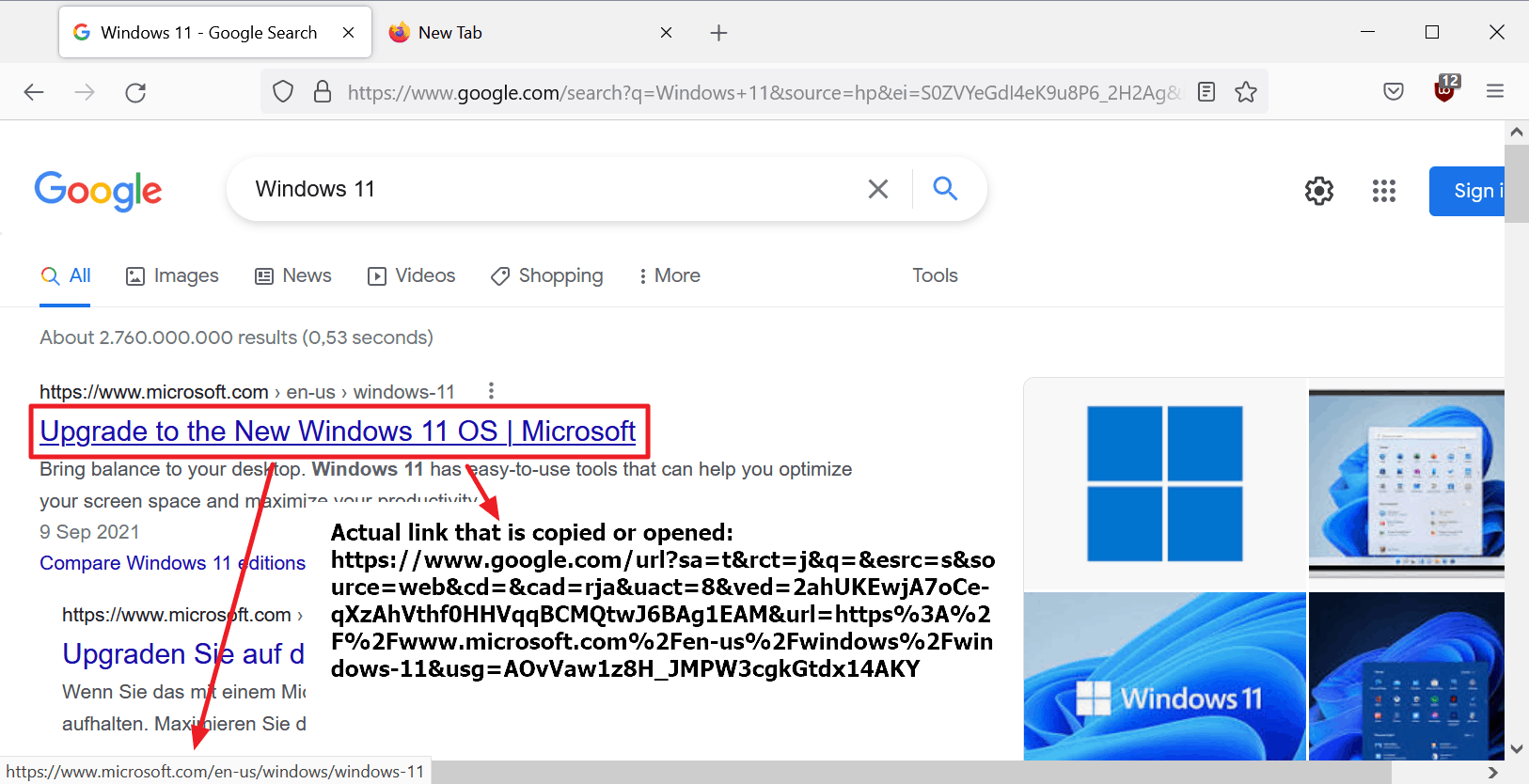When you visit Google Search in the Firefox web browser and run a search, search results look similar to how they are displayed in Google's own browser Chrome. When you right-click on a link to copy it, you will notice a difference when you compare the content that is copied.
In Chrome, the target URL is copied. In Firefox, an intermediary page is copied instead, which includes tracking data and is used by Google to track the activity.

If you notice the behavior, you may have several questions about the difference. Why is Google treating Chrome and Firefox differently? What is the purpose of the intermediary page? How can Firefox be configured to copy the "real" link right away?
Chrome supports the Ping feature, also known as Hyperlink Auditing, and has enabled it by default for links. Firefox supports the feature, but it is not enabled in the browser. Tracking in Chrome uses the ping feature, and since it is used, Google does not require the use of the intermediary page. Firefox does not support it, and to track users, Google uses the intermediary page instead.
Firefox users may check the value of the preference browser.send_pings on about:config. False means that the Ping feature is disabled, True that it is enabled.
The Firefox add-on Don't track me Google has been designed to prevent Google from replacing link targets with intermediary pages on its properties. Once installed, links can be copied or clicked on, so that the intermediary tracking page does not get copied or loaded. The extension works automatically on the Google pages that it supports. It works on Google's main site but also on localized search domains.
Tip: Chrome users who use Google Search can't disable the Ping in the browser as there is no option to do so. Extensions like uBlock Origin support blocking Ping on sites.
Closing Words
It takes more and more time to configure browsers to protect against tracking on the Internet. Users who don't want to be tracked may want to avoid Google Chrome and Google properties, and use third-party alternatives instead that offer better protection against tracking.
For browsers, another Chromium-based browser, such as Vivaldi, or a non-Chromium-based browser, such as Firefox, may do. For search, Startpage, Brave Search or DuckDuckGo, are better options when it comes to tracking.
Now You: which browser and search engine do you use, and why?
Thank you for being a Ghacks reader. The post Don't track me Google for Firefox blocks links manipulations by Google when clicking or copying appeared first on gHacks Technology News.
0 Commentaires